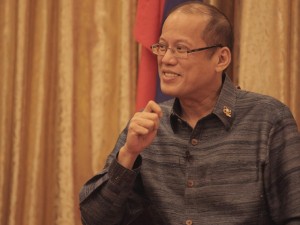VIENTIANE, LAOS—President Aquino has assured two Filipinos facing legal troubles in Saudi Arabia and Vietnam of legal assistance.
Mr. Aquino, as well as Foreign Affairs Secretary Albert del Rosario, told reporters that truck driver Robin Kebeng would be provided legal representation and other forms of assistance.
Kebeng was the driver of the gas tanker that exploded on a main road in Riyadh, killing 22 people, including a Filipino, injuring 11, and causing widespread destruction in the vicinity.
He is being detained by Saudi Arabia authorities over the accident.
The Department of Foreign Affairs has a legal assistance fund which will be used to provide Kebeng a lawyer, litigation fees and other things he needs in court. The Overseas Workers’ Welfare Administration also has a counterpart fund that can help him during the litigation process, it was announced separately in Manila.
The DFA has likewise assured the widow of Florencio Santiago, the lone Filipino fatality in the Riyadh tanker explosion, that it will prioritize the repatriation of his remains.
Mr. Aquino also said he would try to seek a commutation of sentence for Amodia Teresita Palacio, who was sentenced to death in Vietnam for smuggling methamphetamine hydrochloride (“shabu”) there several times.
Palacio was nabbed in Hanoi earlier this year while reportedly carrying 11 pounds of illegal drugs.
The President said he would try to look for an opportunity to talk to Vietnamese Premier Nguyen Tan Dung, whom he described as a good friend of the Philippines.
Mr. Aquino and Tan Dung are in Vientiane for the two-day 9th Asia Europe Meeting, which ended on Tuesday.
The President noted that the Vietnamese government has sought assistance from the Philippines before over their citizens caught illegally fishing in the country’s waters.
“Now we will seek their help and…we will ask for minimum commutation. If necessary, it could be life imprisonment,” he said.
But he also said that if the Filipino has been engaged in drug trafficking multiple times, there are limits to what he could request.
He added that he would tackle the matter informally first, and then later formally communicate his desires to the Vietnamese president and prime minister. With Christine Avendano and Tina G. Santos


